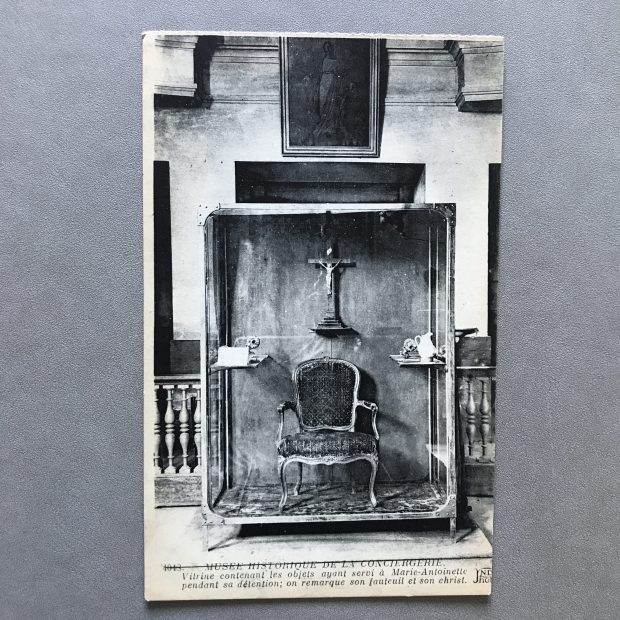July 14 is coming up soon, a date that has as much meaning for France as July 4 has for the USA. The holiday, known as Bastille Day, commemorates the start of the French Revolution -- though there are few who would agree that it ended well. The imprisonment and execution of the royal family was a tawdry affair, not much commemorated in France. Among the best-known victims was Queen Marie-Antoinette.

One place that you can get a feel of the queen’s final months is at the Museum of the Conciergerie. Separated from her son and watched over every minute by leering guards, Marie-Antoinette had few compensations. Unlike most prisoners she was at least allowed visits from a priest and to keep a crucifix. It is one of the rare relics of her pious life that can still be seen. The same crucifix appears in a postcard from more than a 100 years ago. It shows her few possessions in a glass-fronted display case, before a modern tourist-friendly mock-up of her cell was created. Her Catholic convictions in the face of the godless revolution may have had the last word, though. The original cell of last Queen of France is now a chapel.
Photo at top of article is of a reproduction of Marie-Antoinette's cell.
The virtual Museum of the Cross
This early 20th-century postcard is from the collection of the Museum of the Cross, the first institution dedicated to the diversity of the most powerful and far-reaching symbol in history. After 10 years of preparation, the museum was almost ready to open; then came COVID-19. In the meantime, the virtual museum has started an Instagram account to engage with Aleteia readers and the stories of their own crucifixes: @crossXmuseum

